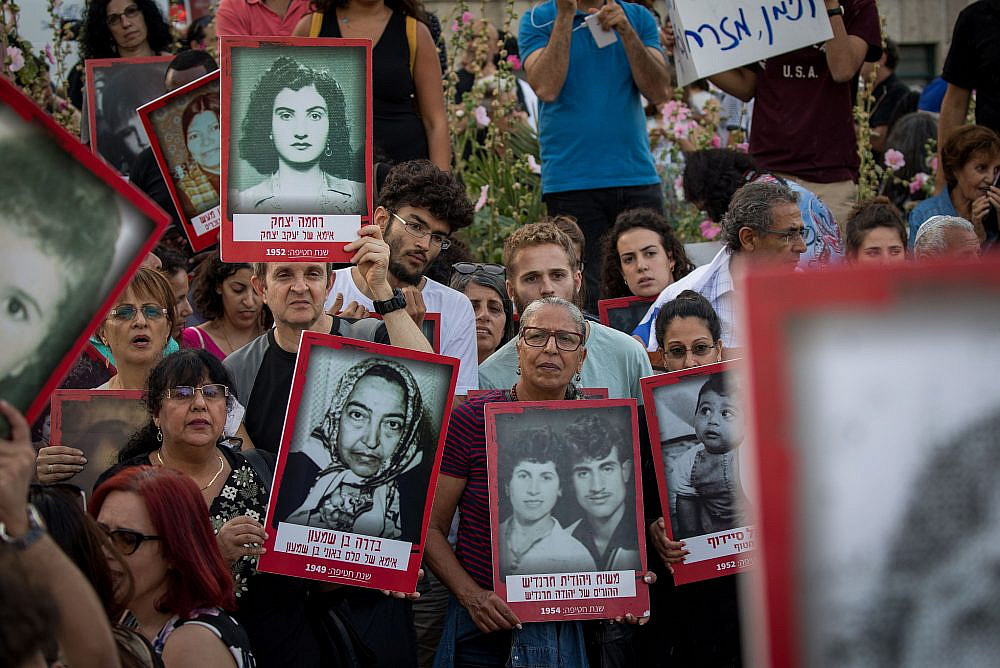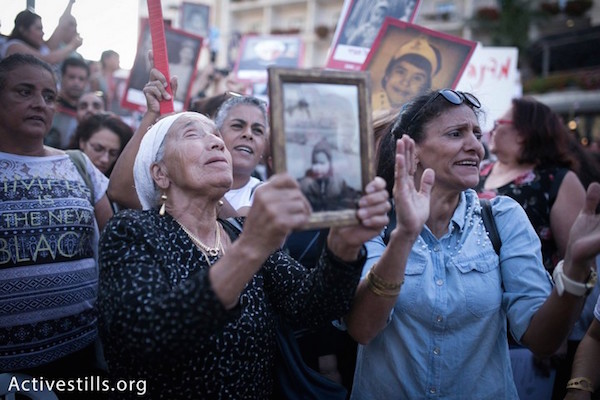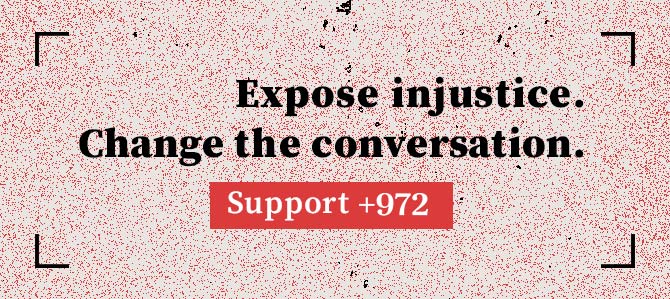Families of kidnapped Mizrahi babies are having a #MeToo moment
For years, the Israeli establishment blamed the victims and dismissed their stories. Now, activists are claiming back the narrative.

Over the last two years, the #MeToo movement has given the world a compelling example of the power of group narratives. The power to highlight and connect survivors’ stories has driven the efforts of the movement and its leader, Tarana Burke, to end sexual violence and dismantle male-dominated power structures. The awareness that women are not alone has helped strengthen previously isolated victims and survivors of sexual abuse.
#MeToo has helped bring down giants such as Jeffrey Epstein and Harvey Weinstein, among others. And while women are far from taking a victory lap, we now find ourselves at a crossroads — one that teaches us several important lessons about other struggles.
First, it teaches us that people are beginning to believe women’s testimonies, which were previously thought to be exaggerated tales. Second, following years of silencing, we have learned that the blame should be placed not only on the perpetrators of sexual violence, but on those who have enabled an abusive culture to persist. Third, we now recognize that multiple testimonies about the same person or organization means the problem is systematic. And lastly, #MeToo has reminded us that sexual violence is not a “women’s problem” — it is a societal one with far-reaching consequences.
In Israel, we have seen the same dynamics unfolding in another story: the struggle over the memory and justice for Yemenite children who were taken from their parents in the years following the state’s founding.
During the mass immigration to Israel from 1948 until the mid-1950s, hundreds if not thousands of babies disappeared from immigrant absorption and transit camps throughout Israel. According to testimonies given to the Kedmi Commission (1995–2001), the absorption policy governing Yemenite Jews required separating children from their parents, since the stone structures housing the babies were in better condition than the tents and tin structures that sheltered the parents.
Babies were usually taken without parental knowledge or consent. Some parents who were present and refused consent reported that camp authorities forcefully took their children from them. Up until the mid-1960s, most families did not realize the magnitude of what came to be known as the Yemenite Children’s Affair.
Many bereft parents knew the state had manipulated them, and they filed complaints with the authorities. But it wasn’t until families started to receive military draft letters addressed to their “dead” children that people began to organize. This led to the formation of the Public Yemenite Committee in 1966, which collected testimonies from families and forced the Israeli government to establish the first public commission to look into the allegations.
Ever since, however, the Israeli establishment’s efforts have been centered on framing parents’ narratives as isolated cases, thereby hindering the ability to discuss the state’s responsibility in its full historical context. Any suggestion of a widely-practiced policy, such as forceful separation of babies from their parents, or the transfer of babies to hospitals and recovery centers without parental consent, was quickly debunked by all three state-appointed commissions, which were supported by the press.
The state’s narrative, founded on a racist ideology, shifted from viewing Mizrahim as inferior and in need of being rescued to defining them as neglectful parents, thus making it easy to claim that the babies were better off elsewhere. Sonia Milstein, the head nurse at the Ein Shemertransit camp, demonstrated this attitude in her commission testimony, referring to Yemenite babies as “packages” and “carcasses.”
When asked if, as a mother, she could understand the pain of the families, Milstein replied: “Oh, I’ve heard this too much lately. After 40 years I would have been happy had my child received a good education and a good family. Yes, that is how I would feel.” This narrative was readily adopted by the Israeli mainstream, which was already primed to think of Mizrahim as unfit parents and to believe the Israeli authorities were doing holy work.

Years of silencing dissenters and calling into question the families’ narrative were buttressed by an eager press. Several weeks ago, we witnessed this practice in action once again. Like a well-rehearsed script, established Israeli reporters used their power and platform to point the finger at victims and activists rather than challenge the state — the equivalent of slut-shaming a victim of sexual assault. They poked “holes” in some of the stories in order to weaken claims about the entire affair, thereby placing the burden of proof on the victim and shifting the responsibility away from an establishment that has evaded justice for decades and still controls our access to information on the Yemenite Children’s Affair.
Many second and third generation Yemenis, as well as other Mizrahim (myself included), grew up in families haunted by these narratives. By documenting testimonies of those who lost their babies and children, activists have focused on the power embodied in the common thread that connects these stories.
The biggest achievement of the #MeToo movement has been the cumulative power of its many components. By reframing the story and forcing the public to listen, activists wrested control of the narrative and brought it back to its rightful owners. This is exactly how we should think about the narratives of the kidnapping of Yemenite and other Mizrahi babies: as neither an isolated story nor a “Yemenite problem.” We are all implicated in this story whether we like it or not.
Last month, the Israeli Supreme Court finally joined the right side of history by rejecting the state’s efforts to isolate the narratives of 11 families that are currently suing the state. More than seven decades too late, the law has finally sought to spotlight the perspective of the families. Five parents, now in their 90s, are among them, giving us a last-minute chance to listen and act. It is our moral obligation — as a state and as individuals — to do just that.
This article was first published in Hebrew on Haokets. Read it here.






Geen opmerkingen:
Een reactie posten